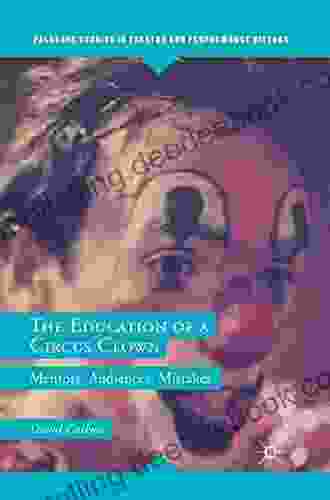The Edge of Reason: An Exploration of the Philosophy of David Hume

David Hume was a Scottish philosopher who lived in the 18th century. He is best known for his work on the philosophy of mind, epistemology, and metaphysics. Hume's philosophy has been very influential in the development of modern philosophy.
4.6 out of 5
| Language | : | English |
| File size | : | 1101 KB |
| Text-to-Speech | : | Enabled |
| Enhanced typesetting | : | Enabled |
| X-Ray | : | Enabled |
| Word Wise | : | Enabled |
| Print length | : | 326 pages |
| Lending | : | Enabled |
| Screen Reader | : | Supported |
| Paperback | : | 162 pages |
| Item Weight | : | 8 ounces |
| Dimensions | : | 6 x 0.35 x 9 inches |
| X-Ray for textbooks | : | Enabled |
Hume's philosophy is often characterized as being skeptical. He argued that we cannot have certain knowledge of anything, including the external world, our own minds, and even our own existence. Hume's skepticism is based on his theory of knowledge, which he developed in his book "A Treatise of Human Nature." In this book, Hume argues that all of our knowledge is derived from experience. We can only know about things that we have experienced ourselves, or that we have learned about from others who have experienced them. Hume's theory of knowledge is very influential, and it has been used by many philosophers to argue against the possibility of certain knowledge.
Hume's philosophy also has important implications for ethics. Hume argued that there is no such thing as objective morality. He believed that all moral judgments are based on subjective feelings and preferences. This view is known as moral relativism, and it has been very influential in the development of modern ethics.
Hume's philosophy is complex and challenging, but it is also very important. Hume's work has had a major impact on the development of modern philosophy, and it continues to be studied and debated today.
Hume's Philosophy of Mind
Hume's philosophy of mind is based on his theory of knowledge. He argued that we cannot have certain knowledge of our own minds, because we cannot directly observe our own mental processes. We can only know about our minds through introspection, which is the process of looking inward at our own thoughts and feelings. However, Hume argued that introspection is not reliable, because it is often influenced by our emotions and prejudices.
Hume's skepticism about the mind led him to develop a theory of personal identity that is very different from the traditional view. The traditional view is that personal identity is based on the soul or the self. Hume, however, argued that there is no such thing as a soul or a self. He believed that personal identity is simply a collection of experiences that are connected together by memory. This view is known as the bundle theory of personal identity, and it has been very influential in the development of modern philosophy of mind.
Hume's Epistemology
Hume's epistemology is based on his theory of knowledge. He argued that all of our knowledge is derived from experience. We can only know about things that we have experienced ourselves, or that we have learned about from others who have experienced them. Hume's theory of knowledge is very influential, and it has been used by many philosophers to argue against the possibility of certain knowledge.
Hume's skepticism about knowledge led him to develop a theory of belief that is very different from the traditional view. The traditional view is that belief is based on reason. Hume, however, argued that belief is actually based on habit. We believe things because we are accustomed to believing them, not because we have any good reasons for believing them. This view is known as the habit theory of belief, and it has been very influential in the development of modern epistemology.
Hume's Metaphysics
Hume's metaphysics is based on his theory of knowledge and his theory of mind. He argued that we cannot have certain knowledge of the external world, because we cannot directly observe it. We can only know about the external world through our senses, which are not reliable. Hume's skepticism about the external world led him to develop a theory of reality that is very different from the traditional view. The traditional view is that reality is made up of物质. Hume, however, argued that reality is actually made up of perceptions.
Hume's theory of reality is known as the phenomenalist theory of reality. This theory has been very influential in the development of modern metaphysics.
David Hume was a brilliant and influential philosopher. His work has had a major impact on the development of modern philosophy, and it continues to be studied and debated today.
4.6 out of 5
| Language | : | English |
| File size | : | 1101 KB |
| Text-to-Speech | : | Enabled |
| Enhanced typesetting | : | Enabled |
| X-Ray | : | Enabled |
| Word Wise | : | Enabled |
| Print length | : | 326 pages |
| Lending | : | Enabled |
| Screen Reader | : | Supported |
| Paperback | : | 162 pages |
| Item Weight | : | 8 ounces |
| Dimensions | : | 6 x 0.35 x 9 inches |
| X-Ray for textbooks | : | Enabled |
Do you want to contribute by writing guest posts on this blog?
Please contact us and send us a resume of previous articles that you have written.
 Page
Page Chapter
Chapter Text
Text Story
Story Reader
Reader Library
Library Paperback
Paperback E-book
E-book Magazine
Magazine Newspaper
Newspaper Paragraph
Paragraph Bookmark
Bookmark Shelf
Shelf Glossary
Glossary Bibliography
Bibliography Foreword
Foreword Preface
Preface Scroll
Scroll Codex
Codex Bestseller
Bestseller Library card
Library card Biography
Biography Memoir
Memoir Dictionary
Dictionary Card Catalog
Card Catalog Borrowing
Borrowing Stacks
Stacks Periodicals
Periodicals Research
Research Scholarly
Scholarly Reserve
Reserve Journals
Journals Rare Books
Rare Books Study Group
Study Group Thesis
Thesis Dissertation
Dissertation Reading List
Reading List Book Club
Book Club Theory
Theory Textbooks
Textbooks 2007th Edition Kindle Edition
2007th Edition Kindle Edition Mark Schneider
Mark Schneider Timothy M Matovina
Timothy M Matovina Karen E Chin
Karen E Chin Haley Pierson Cox
Haley Pierson Cox Anne Mitchell Whisnant
Anne Mitchell Whisnant Nikki Landis
Nikki Landis Henri Alleg
Henri Alleg Julie Otsuka
Julie Otsuka Donald E Weatherbee
Donald E Weatherbee Chris Abernathy
Chris Abernathy Lindsay Nicholson
Lindsay Nicholson David A Sherris
David A Sherris William J Lipham
William J Lipham Patrick Jones
Patrick Jones 2012th Edition Kindle Edition
2012th Edition Kindle Edition Stephen Browning
Stephen Browning Andrew Livesey
Andrew Livesey Massimo Vacchetta
Massimo Vacchetta Mike Mackessy
Mike Mackessy
Light bulbAdvertise smarter! Our strategic ad space ensures maximum exposure. Reserve your spot today!

 Floyd RichardsonThe Definitive Guide to Piano Vocal Chords Sheet Music from the Broadway...
Floyd RichardsonThe Definitive Guide to Piano Vocal Chords Sheet Music from the Broadway...
 Branson CarterThree Generations: The Echols Family's Legacy of Strength, Resilience, and...
Branson CarterThree Generations: The Echols Family's Legacy of Strength, Resilience, and...
 Beau CarterThe Enchanting World of Circus Clowns: A Journey into the Art of Laughter and...
Beau CarterThe Enchanting World of Circus Clowns: A Journey into the Art of Laughter and... August HayesFollow ·12.5k
August HayesFollow ·12.5k Earl WilliamsFollow ·5.5k
Earl WilliamsFollow ·5.5k Logan CoxFollow ·6.1k
Logan CoxFollow ·6.1k Jarrett BlairFollow ·19.5k
Jarrett BlairFollow ·19.5k Jorge AmadoFollow ·16.2k
Jorge AmadoFollow ·16.2k Jerry WardFollow ·16.5k
Jerry WardFollow ·16.5k Jackson HayesFollow ·16.9k
Jackson HayesFollow ·16.9k Demetrius CarterFollow ·3.8k
Demetrius CarterFollow ·3.8k

 Howard Blair
Howard BlairClassical Music Themes for Easy Mandolin, Volume One
Classical Music Themes for Easy Mandolin,...

 Paulo Coelho
Paulo CoelhoThe Heretic Tomb: Unraveling the Mysteries of a Lost...
Synopsis In Simon Rose's captivating debut...

 Rodney Parker
Rodney ParkerThe Passionate Friends Annotated Wells: A Deeper...
Unveiling the...

 Ed Cooper
Ed CooperDelicious Stories of Love, Laughs, Lies, and Limoncello...
In the heart of...

 Elmer Powell
Elmer PowellHal Leonard Piano For Kids Songbook: Unleashing the...
Music holds immense...
4.6 out of 5
| Language | : | English |
| File size | : | 1101 KB |
| Text-to-Speech | : | Enabled |
| Enhanced typesetting | : | Enabled |
| X-Ray | : | Enabled |
| Word Wise | : | Enabled |
| Print length | : | 326 pages |
| Lending | : | Enabled |
| Screen Reader | : | Supported |
| Paperback | : | 162 pages |
| Item Weight | : | 8 ounces |
| Dimensions | : | 6 x 0.35 x 9 inches |
| X-Ray for textbooks | : | Enabled |








